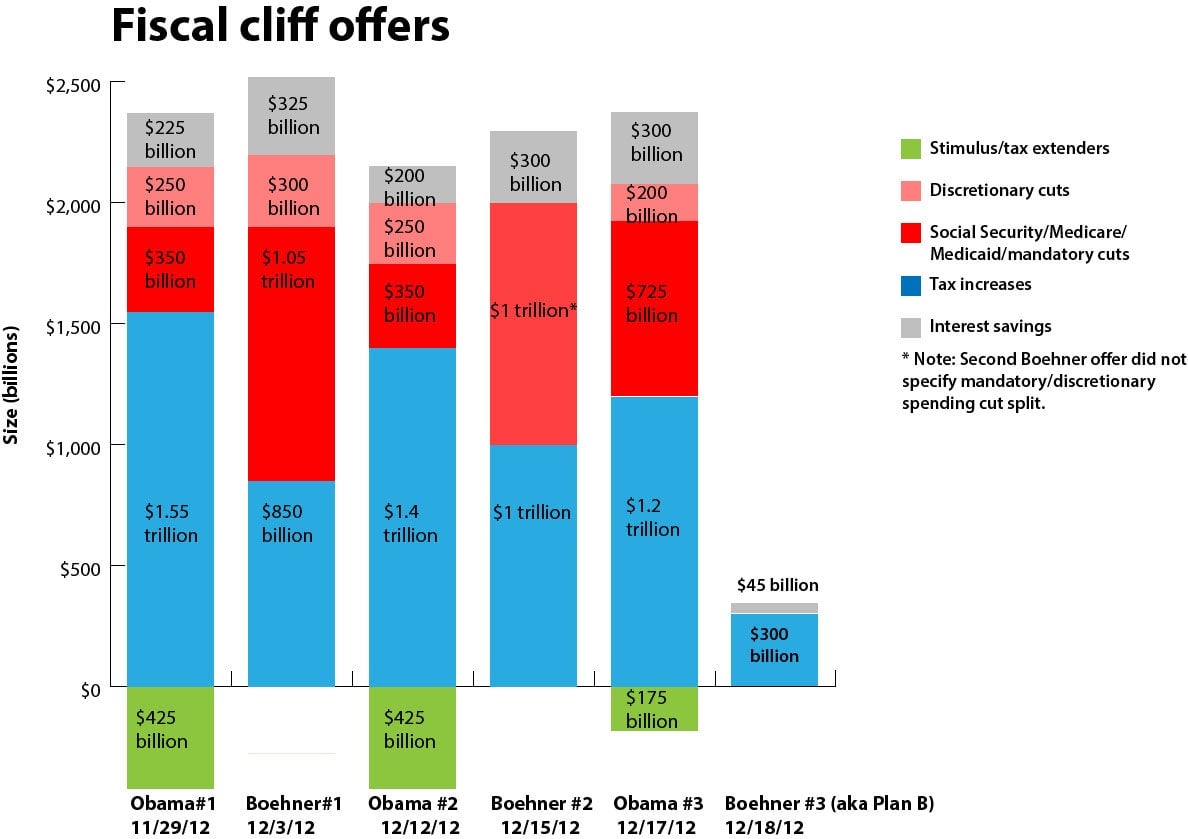As the cliff approaches, House speaker tests Republican willingness to vote for higher taxes
With the Christmas weekend fast approaching—a symbolically important, pre-fiscal cliff deadline for American markets and lawmakers alike—the window is narrowing for a deal to avert an automatic austerity program in the United States.

With the Christmas weekend fast approaching—a symbolically important, pre-fiscal cliff deadline for American markets and lawmakers alike—the window is narrowing for a deal to avert an automatic austerity program in the United States.
On Wednesday, both US President Barack Obama and Speaker of the House John Boehner had press conferences, but nothing has changed: While the two sides are fairly close (see Wonkblog’s excellent chart above demonstrating the fairly limited difference between the last two major offers) each has a political incentive for brinksmanship: Obama because the fiscal cliff improves his negotiating position, Boehner to placate restive conservative politicians who still want to keep tax cuts for the wealthy.
To that end, Boehner hopes to vote on his”Plan B” approach Thursday, extending tax cuts on the middle class but also raising taxes a little less than half as much as President Obama proposes, by increasing the marginal tax rate on incomes above $1 million by an additional 4.6 percentage points. Obama would like to see those who make more than $400,000 a year, eight times the median income, see that increase.
The vote is a classic “messaging bill” designed to split the President from Senate Democrats, who might support it over Obama’s offer, but now it’s not clear if Boehner can convince his own caucus to support the bill, with many conservatives unwilling to support a tax increase on anyone, even the richest.
Setting aside the rhetoric, the analysts at the Eurasia Group remain optimistic that a deal will be done by Jan. 1 if “Plan B” can pass through the House, since it will put a majority of Republicans on the record in support of higher tax rates, opening up an avenue for compromise. Then, it’s just a matter of procedure:
If the Speaker and the President have a deal by the time Plan B gets to the Senate, Majority Leader Harry Reid could substitute that in. If the Speaker and the President do not have a deal at that point, Reid can substitute in the President’s Monday offer or a modification, which, if passed, would be sent back to the House. Either way, the House would only need to vote one more time-to accept a final deal that arrives from the Senate or to pass a final deal and send it over to the Senate.
However, if Plan B fails, and House Republicans aren’t willing to accept tax rate increases, it’s back to the drawing board—and more likely that the US will activate, however temporarily, a new period of massive austerity.